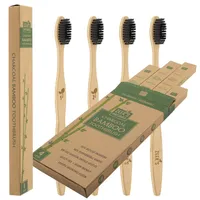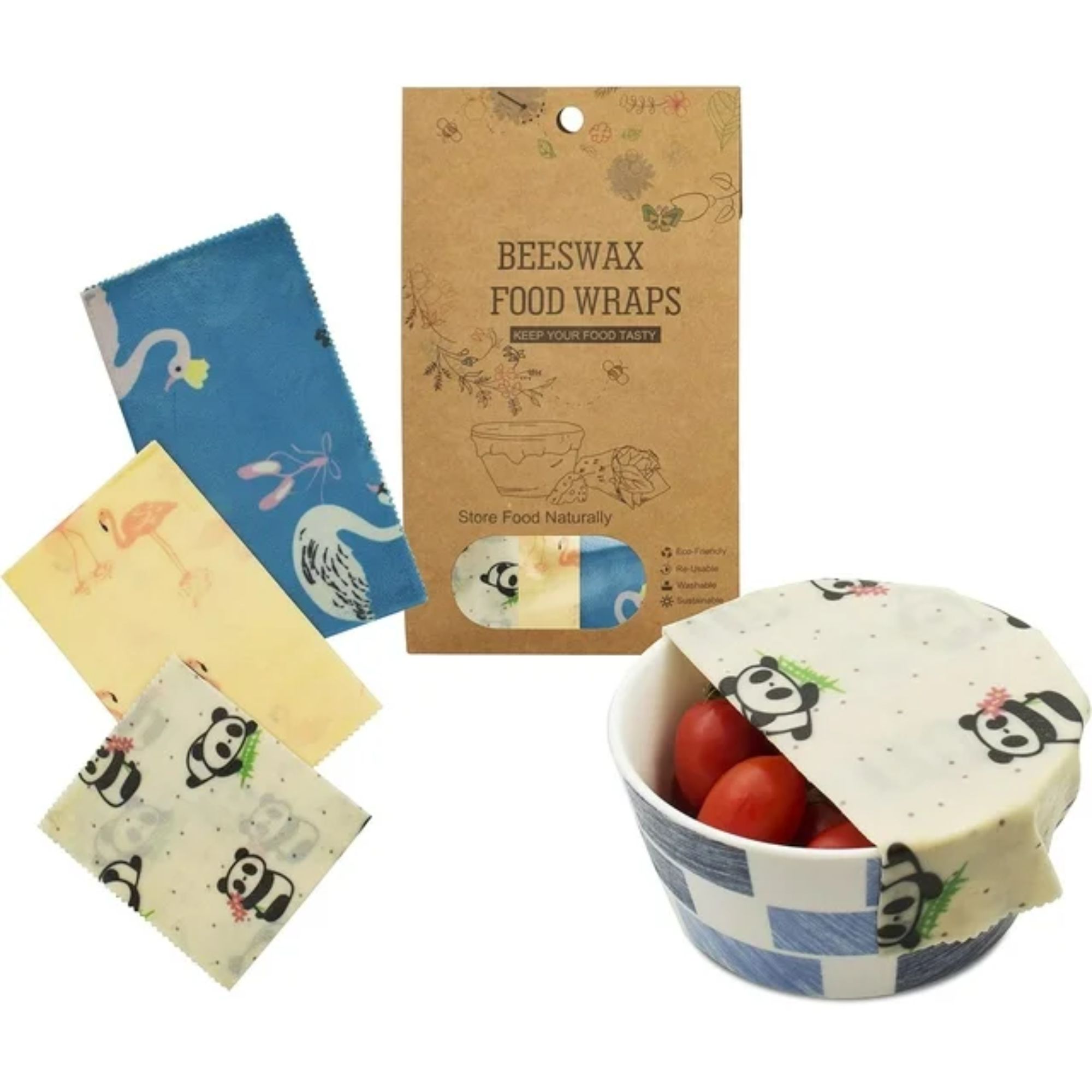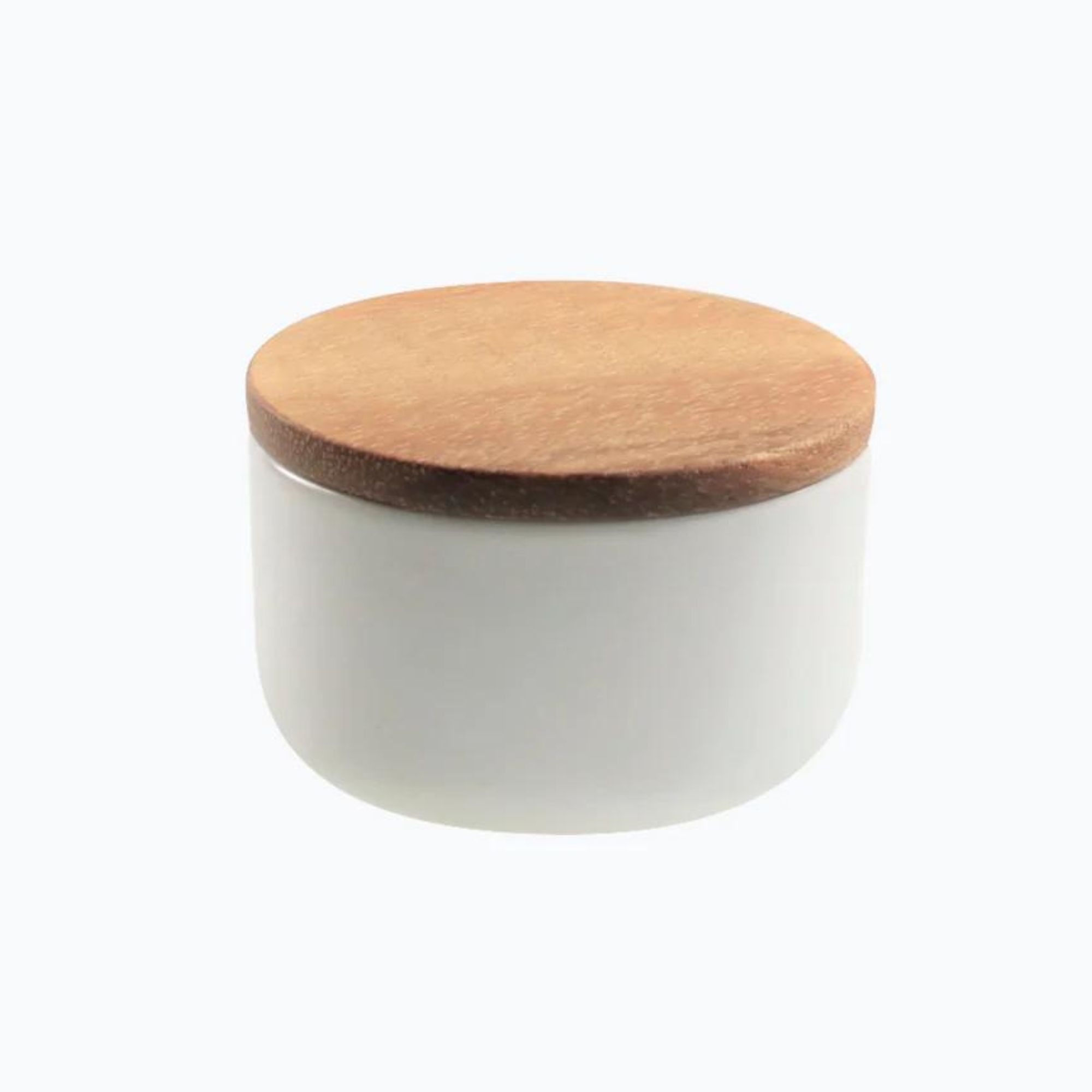5 items I never throw out – and how I reuse them around my home
I not only save the planet by reusing these five home items – I save money too

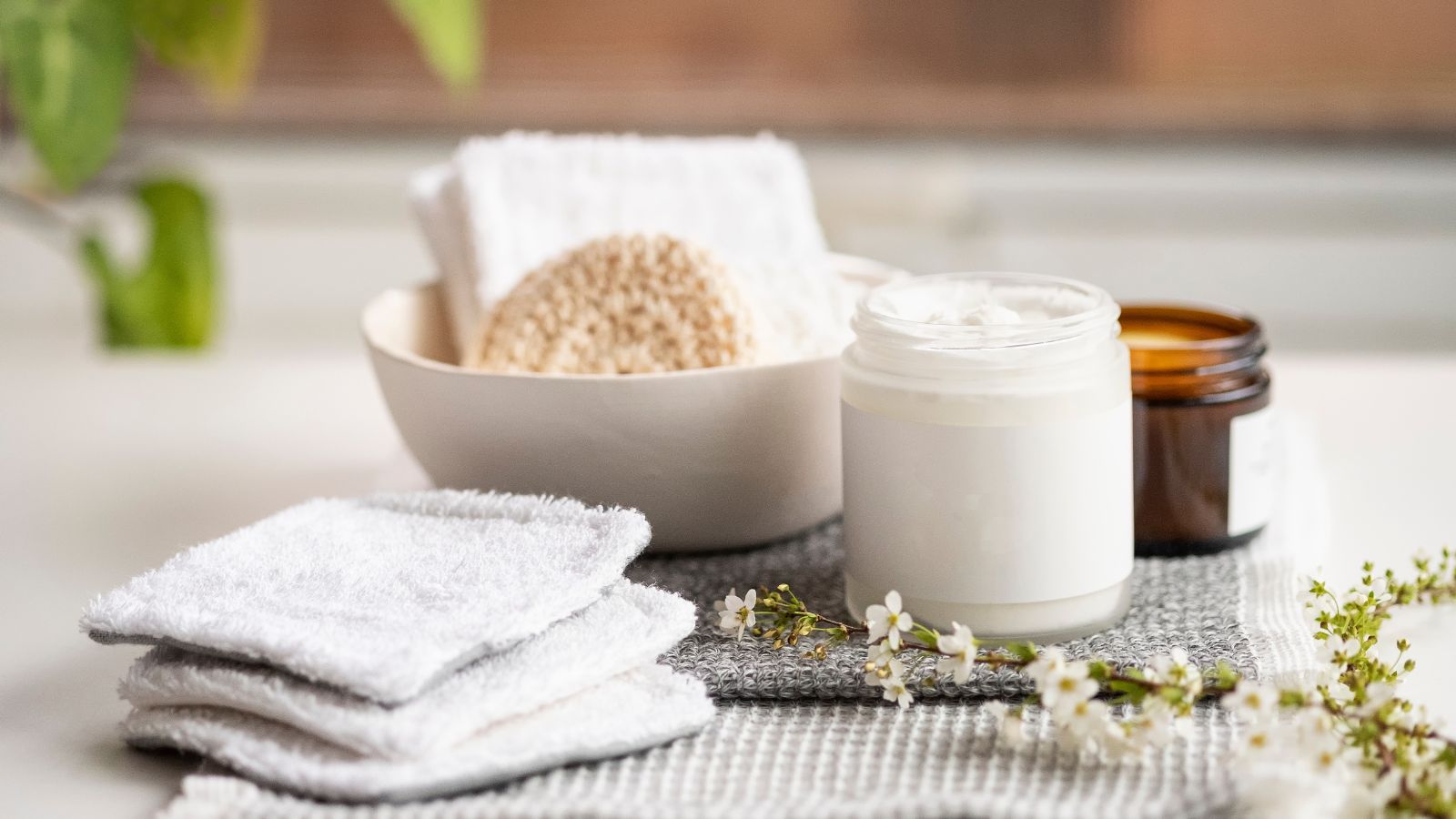
I have always been very conscious of the impact of my home waste on the environment. While I didn’t grow up in a particularly eco-conscious household, my parents did love to hang onto old household items to try and reuse them in any way they could.
While this did become a bit ridiculous at times (keeping a hold of every interesting jar we saw did mean we needed a lot of storage), it taught me some invaluable lessons about how to reuse just about everything we were otherwise going to trash – helping me to save money and limit my contributions to landfill. A win-win for everyone.
For Earth Day, I have decided to share my five favorite items to reuse in my home, and how I put these hardworking pieces to good use to limit waste and save money at home.
5 items I never throw out
While I try to find a purpose for whatever I can around my home, from using empty toilet roll tubes as seed tray alternatives to finding new uses for worn-out towels, these are my five favorites to reuse and recycle around my home.
1. Old bed sheets

I am a sucker for buying new bed sheets, whether they have worn out or not. This isn't the most responsible consumption habit of mine, but it is one of the small things that bring me joy – especially when I sink into them for the first time when they have been freshly washed and line-dried. When I finally declutter and organize my linen closet, I always like to find a use for the old sets I part with and limit the impact of my overconsumption.
Depending on the fabric, there are four things I use old bed sheets for:
Suppose the bedding is worn out or the material is not overtly beautiful. In that case, they usually become painting drop cloths for when I inevitably revamp a room, or I cut them up into cleaning cloths for use around my home and in my shed.
Design expertise in your inbox – from inspiring decorating ideas and beautiful celebrity homes to practical gardening advice and shopping round-ups.
If the fabric is nice, however, I reuse it in one of two ways. I either pass it on to my mom, who then uses it for sewing projects (you can also give it to charities and crafting clubs if you are not crafty yourself), or I cut it up into sizable chunks and use it to wrap up gifts.
Also called Furoshiki, this traditional Japanese wrapping technique uses reusable fabric wrapping rather than disposable paper. It not only helps the environment but truly elevates your gift-giving game.
2. Toothbrushes
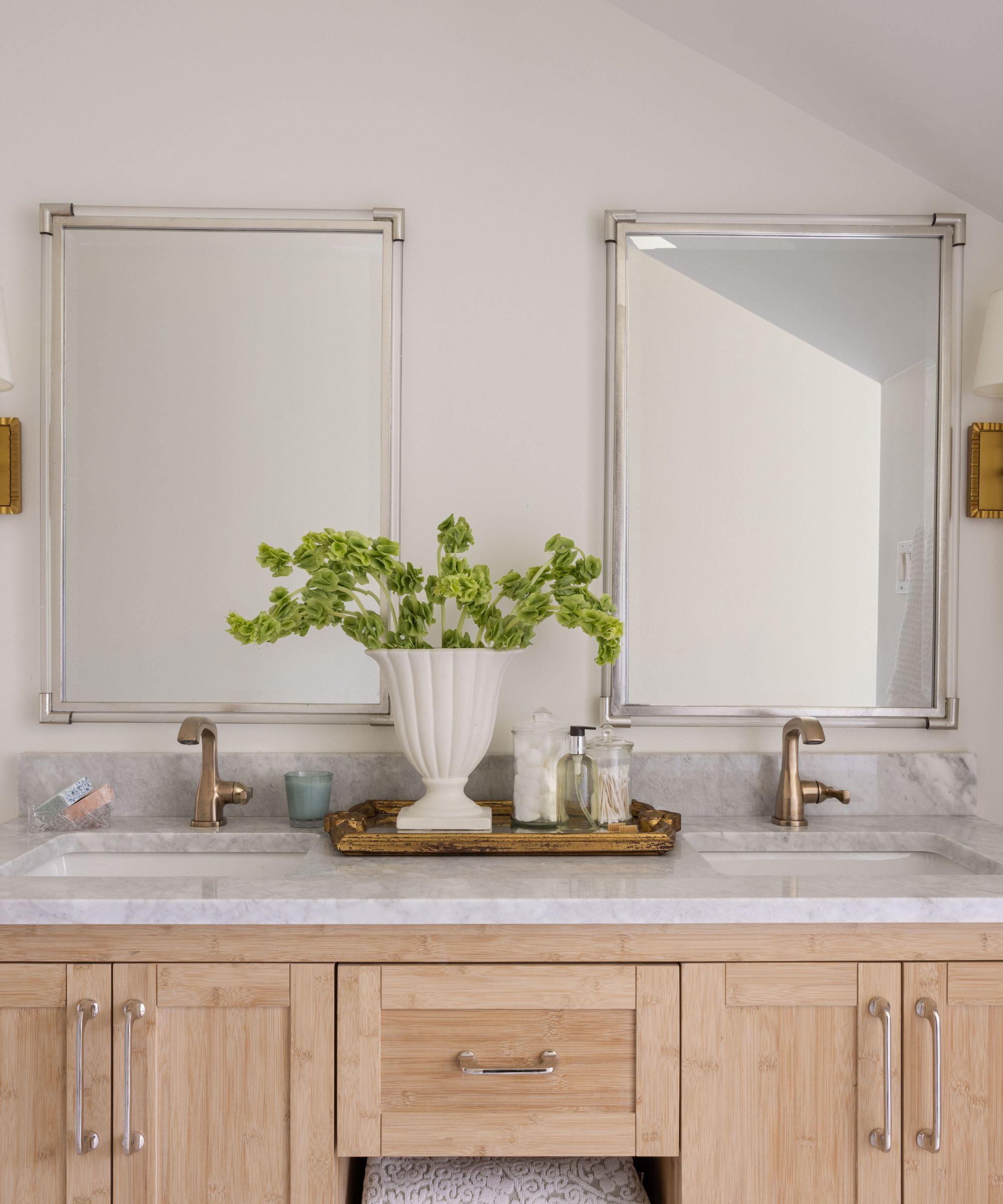
Of all the essential cleaning tools available on the market, I often find that a humble toothbrush is one of the best for getting into small crevices and grout lines – which is why they're one of the bathroom items I never throw away when I swap them out.
This is not to say that I never trash them. There does come a point where the bristles are worn out and I can’t justify sterilizing them anymore – then I will throw them out. I will usually try to buy bamboo toothbrushes (one of the best sustainable household swaps) to really limit my plastic use.
Bamboo Toothbrushes | $7.75 at Amazon
Plastic-free and biodegradable, these bamboo toothbrushes are the best place to start when looking to swap to an eco-conscious lifestyle
3. Food containers
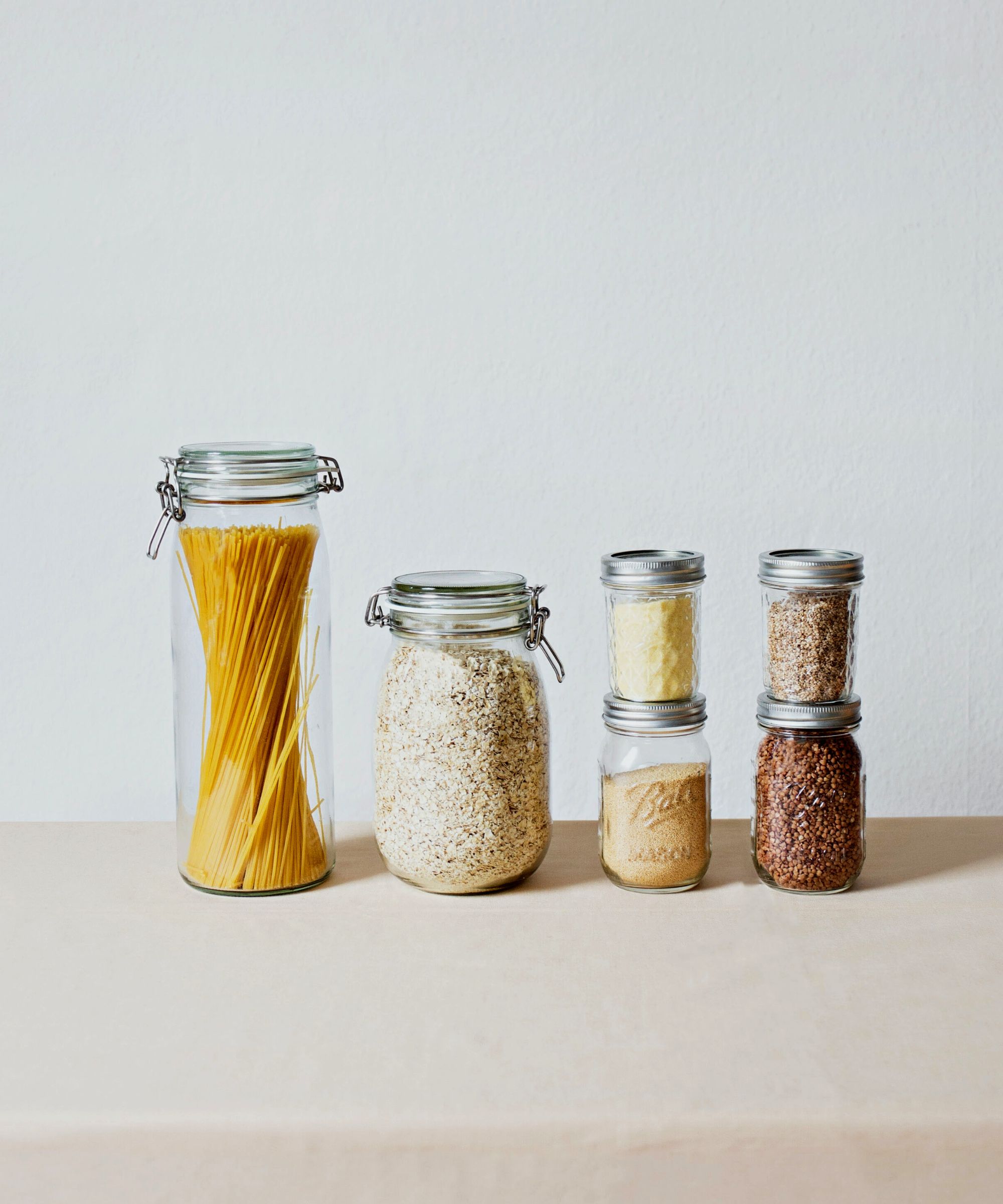
This is likely very common in most households, but reusing food containers is a great food storage idea to reduce food waste while limiting your environmental impact. You don't just have to use these for food storage and organizing a pantry, however. Depending on the container, there are several uses for old food packaging.
Glass bottles make for great candle holders, especially when I let the melted wax drip down the sides for a vintage look, while plastic food boxes are put in the shed for whenever I need to mix paints, rest paint brushes, or wash something off quickly while I work.
You can even use some containers to help you organize a house without spending, remembering that storage doesn't have to look pretty so long as it makes your life easier.
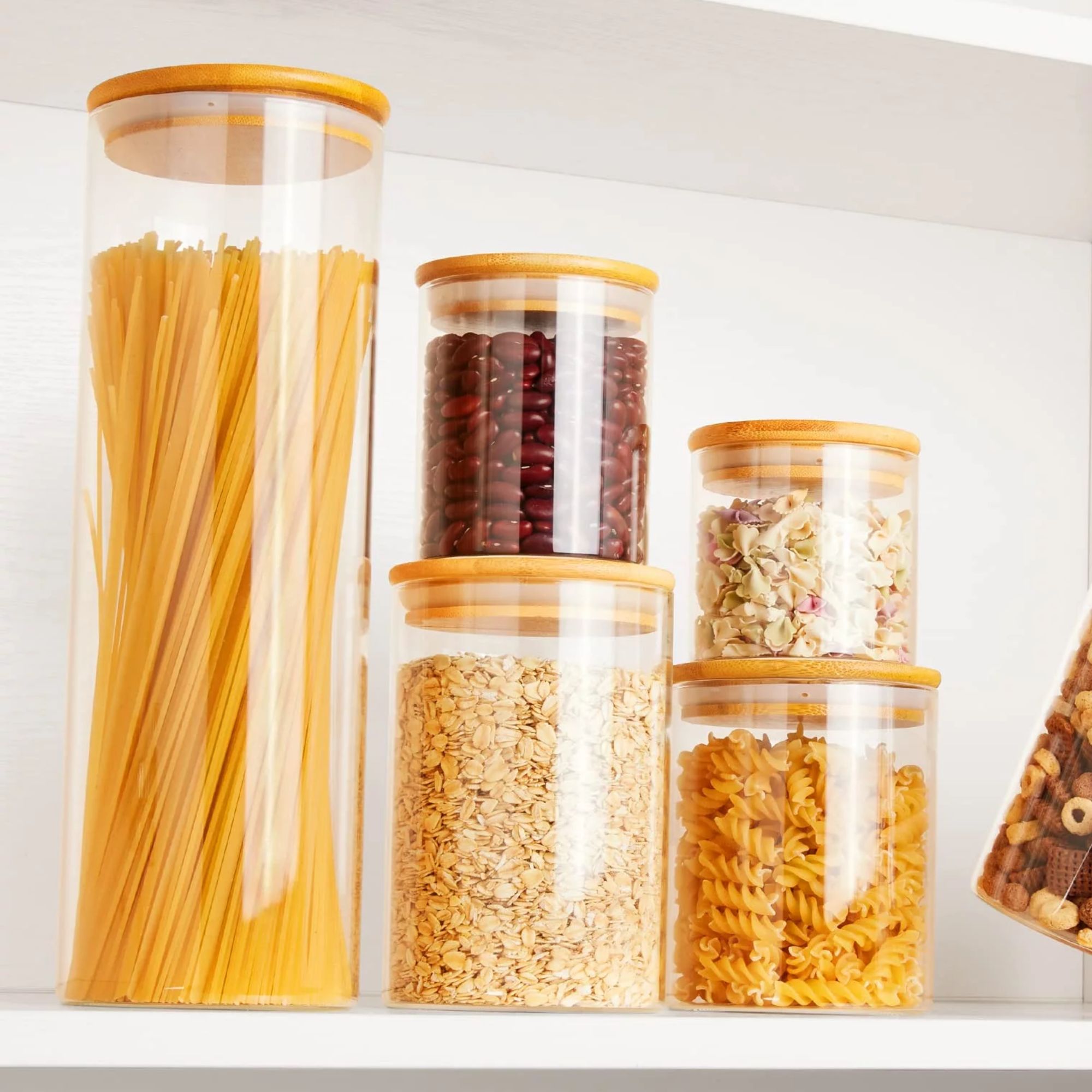
Decanting your food and bulk-buying groceries is another great way to be eco-friendly in the kitchen. This set of seven glass food storage containers with bamboo lids are the perfect way to elegantly display your food.
4. Plastic bottles
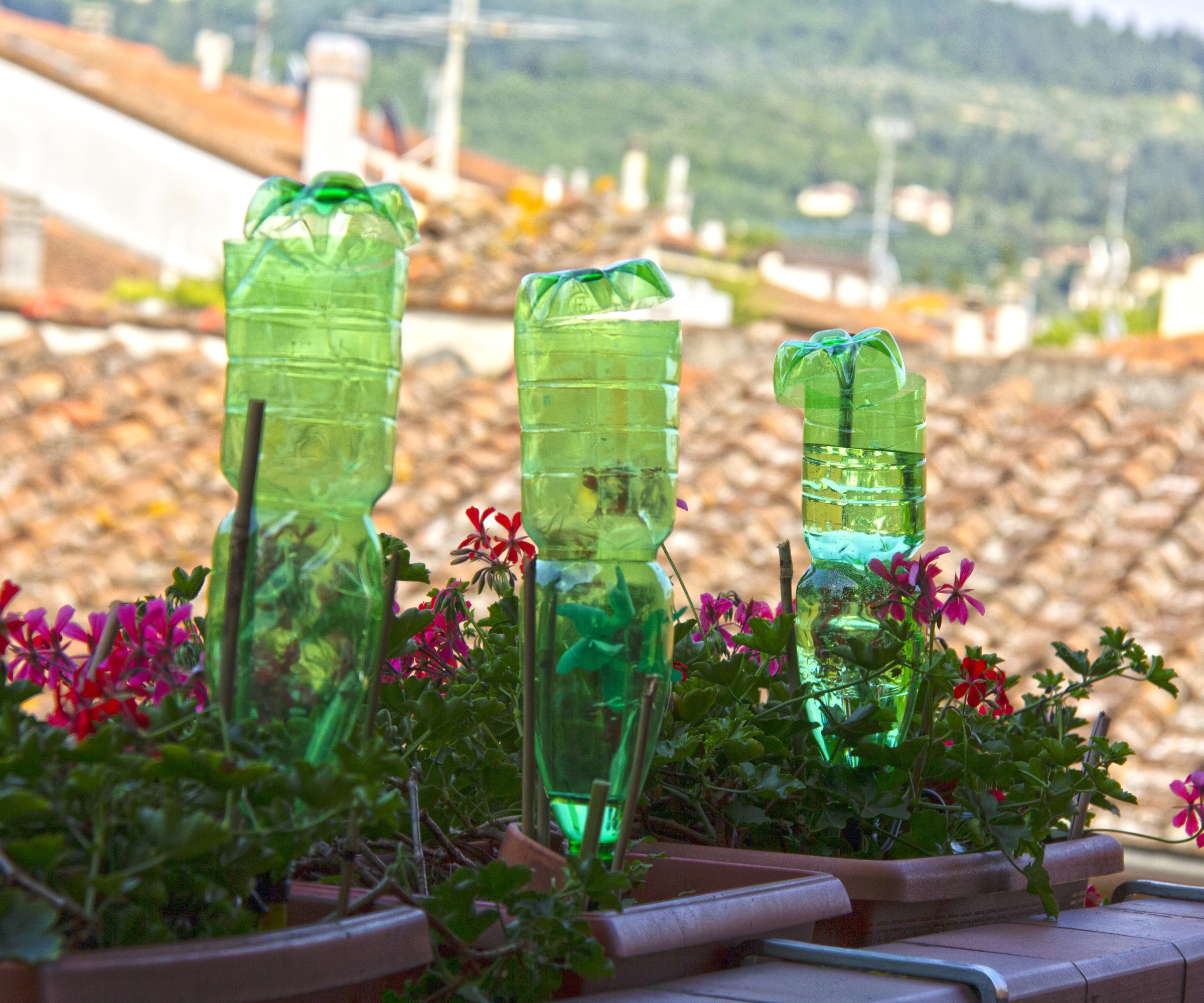
Plastic bottles watering container plants
I very rarely buy plastic bottles, instead opting for drinks in cans or glass bottles which are easier to recycle. When I do get a plastic bottle, I try to find ways to extend its usage and prevent it going straight to landfill.
One of my preferred ways to use them is to make an impromptu watering globe to help water plants – especially considering the fact I am terrible at keeping houseplants alive. I cut the base of the bottle off and poke small holes into the lid. Now I just need to fill the bottle up and let the plant take the water it needs, helping to reduce how many plants I have to throw out.
While I have not done it myself, I have also seen people cut a slice through plastic milk cartons and fill them with soil before starting seeds. The top of the milk bottle acts as a mini greenhouse, keeping the seedlings warm and moist as they germinate.
Another great use is to help make a temporary air conditioning unit to stay cool without spending in summer. I leave a bottle of water in my freezer and pull it out to place behind a fan during a heat wave. As I don’t have an air conditioner, this helps blow cooler air around my space.
5. Package boxes

As someone who loves to give gifts, I am always looking for ways to elevate my gift wrapping. Whenever I get a good-sized package in the mail, I will usually keep the box to one side for my next friend’s birthday. When the event rolls around, I will fill the box with goodies and gifts to give them – wrapping it all in nice fabric of pretty recyclable gift wrap and a nice bow.
If the box has branding on it, I will wrap the box itself, following the contours of the folds to hide the original coloring. Otherwise, I will quickly repaint the box to add a pop of color.
These quick and easy ways to be more sustainable at home are lifesavers for my home, my wallet, and the planet. While you don’t need to reuse everything that comes through your home, picking up just a few simple habits will make a small dent in your environmental footprint, which is all that anyone can ask – what tricks, like the toilet paper tubes closet hack, do you use to limit your environmental impact?

Chiana is Homes & Gardens’ kitchen appliances editor. With a lifelong passion for cooking and baking, she grew up experimenting in the kitchen every weekend with her baking-extraordinaire Mom, and has developed a great understanding of how tools and appliances can make or break your ideal relaxing kitchen routine.
